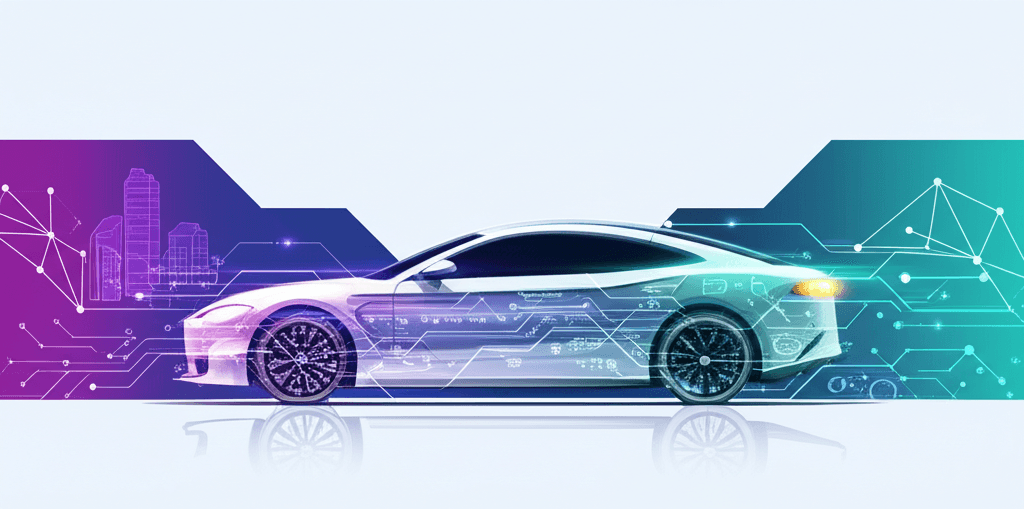Accenture, IIT Madras Partner to Bridge Automotive AI, Software Skills Gap
Fueling the automotive revolution: Accenture and IIT Madras partner to upskill talent for the era of software-defined, AI-powered vehicles.
June 30, 2025

In a strategic move to address the automotive industry's seismic shift toward software-defined vehicles (SDVs), professional services giant Accenture and the Indian Institute of Technology Madras (IIT Madras) have joined forces. The collaboration, operating through Accenture's LearnVantage Software-Defined Vehicle Academy and IIT Madras's Centre of Excellence in Advanced Automotive Research (CAAR), aims to launch specialized skilling programs designed to cultivate a new generation of talent equipped for the complexities of modern vehicle development.[1][2][3] This initiative directly targets the growing skills gap, providing a crucial bridge between traditional automotive engineering and the digital expertise now essential for creating the cars of the future. The partnership is a direct response to a market in radical transformation, where software, not just hardware, dictates vehicle functionality, performance, and user experience.[4][5]
The collaboration is built upon a pre-existing relationship between the two institutions, which includes a joint Center of Excellence (CoE) focused on research in areas like autonomous robotics, the industrial internet of things (IIoT), and advanced automotive technologies.[1][6][7] The new training programs are specifically designed for automotive technology practitioners at Original Equipment Manufacturers (OEMs) and their Global Capability Centers (GCCs).[1] The curriculum is comprehensive, covering a wide array of critical domains including advanced Internet of Things (IoT), embedded systems and software, vehicle safety, cybersecurity, and communication protocols.[1][2] It will also delve into edge computing, cloud virtualization, and key industry standards such as AUTomotive Open System ARchitecture (AUTOSAR) and Automotive Software Process Improvement Capability Determination (ASPICE).[1][2] The learning model is a hybrid, blending self-paced modules with live, instructor-led sessions conducted by IIT Madras faculty, ensuring both flexibility and deep, expert-guided instruction.[1][8] This approach is intended to rapidly upskill and reskill talent, enabling them to navigate the increasingly interdisciplinary landscape of SDV development.[1]
The push toward software-defined vehicles represents one of the most significant transformations in the automotive industry's history.[4] Unlike traditional vehicles where hardware dictates function, SDVs are built on software platforms that control everything from advanced driver-assistance systems (ADAS) and infotainment to core vehicle operations.[4][9] This paradigm allows for continuous improvement and the addition of new features through over-the-air (OTA) updates, much like a smartphone.[10][11][9] The financial implications are staggering, with an Accenture Research estimate projecting the software-defined digital services market to reach USD 3.5 trillion, accounting for 40% of global automotive industry revenues by 2040.[1][2][3] This shift is compelling traditional OEMs to rethink their entire value chain and business models, moving from one-time sales to recurring revenue streams through subscription services for advanced features.[4][5] However, this transition is not without its challenges. Established automakers often face difficulties in developing the necessary software and advanced AI capabilities internally, creating a significant talent gap.[4][12] The demand for software engineers in the automotive sector is expected to increase dramatically, yet the industry faces stiff competition for this talent from tech companies.[12]
The integration of Artificial Intelligence (AI) is a critical component of this evolution, acting as a game-changer across the automotive lifecycle.[4][13] In the realm of SDVs, AI enhances autonomous driving capabilities through technologies like computer vision and natural language processing, enabling vehicles to interpret their surroundings and make decisions with greater speed and reliability than a human driver.[14][9] AI algorithms also optimize vehicle performance, managing everything from battery efficiency in electric vehicles (EVs) to suspension settings for improved comfort.[14] Furthermore, AI is pivotal in creating personalized in-vehicle experiences, learning user preferences to tailor everything from climate control to music selection.[14][15] Beyond the vehicle itself, AI is transforming the entire production workflow. Automakers are leveraging generative AI for vehicle design, using digital twins to test software in simulated environments, and deploying AI-powered chatbots to enhance customer service.[16] This profound integration of AI necessitates a workforce fluent in machine learning, data analytics, and cybersecurity—skills that are currently in short supply within the automotive sector.[1][17] The collaboration between Accenture and IIT Madras is a direct attempt to fill this void, recognizing that the future of mobility depends on a workforce that can seamlessly blend automotive engineering with advanced digital and AI proficiency.[1][18][3]
Ultimately, the partnership between Accenture and IIT Madras signifies a critical step in aligning education and industry to meet the demands of the AI-driven automotive revolution. By combining Accenture's industry insights and learning platform with IIT Madras's academic and research excellence, the program aims to create a robust talent pipeline for the burgeoning SDV market.[1][8] Kishore Durg, global lead of Accenture LearnVantage, emphasized that as vehicles become sophisticated, software-defined machines, the industry needs "digital-native talent skilled in AI, machine learning, cybersecurity, and safety systems."[1] Thiruppathy Srinivasan, CEO of CAAR at IIT Madras, echoed this sentiment, noting that the rapid evolution of automotive technology demands both new digital skills and a larger pool of skilled professionals.[1][19] This initiative not only addresses a pressing industry need but also highlights a broader trend of academia and industry co-creating solutions to navigate technological disruption. As the car transforms into an intelligent, connected device, programs like this will be essential in ensuring the workforce is prepared to design, build, and maintain the future of transportation.[11]
Sources
[1]
[6]
[9]
[12]
[13]
[14]
[15]
[17]
[18]